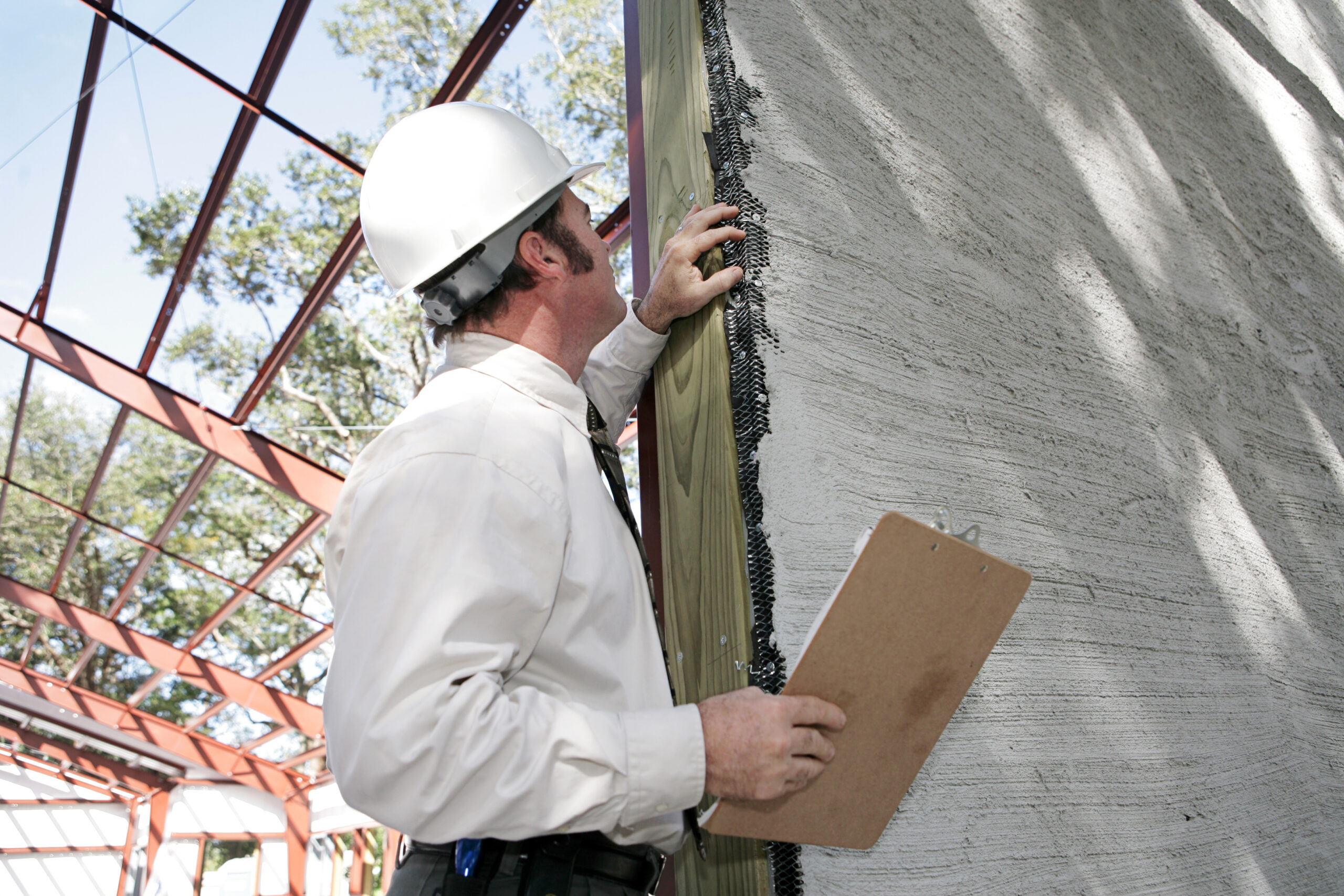
There are various ways that an Engineer can assist during the construction phase, one of these avenues includes conducting construction inspections. Having the design professional of record retained for services during construction is in the best interest of the Owner and Project. Engineers are NOT contractors and do not perform construction management or means and methods of construction. This means that they do not instruct the contractor on schedules or techniques of construction. That responsibility falls on the contractor.
Why does my site need this inspection?
Depending on the type of inspection, it could be a requirement from the Architect or Engineer of Record, a code requirement, a local municipality requirement, or an Owner who wants to have an extra layer of protection that their project is being built according to the plans.
What is the engineer looking for?
It depends on what type of inspection, but it could vary from a visual only observation for general substantial conformance with the plans to testing of welding, bolting, and concrete.
Testing could include concrete slump and strength testing, as well as monitoring of curing conditions. Steel testing could include testing bolt torque and ultrasonic or dye penetrant testing of welds.
What happens if something is not up to code?
In a general substantial conformance observation, the engineer would be checking against the plans and specifications and would provide a report that indicates any deficiencies. If testing is being performed, and the results do not achieve the specified values, that also would be put in a report. In general, the reports go to the Architect and Engineer of Record and/or the code official. The Architect and/or Engineer of record will generally determine whether the deficiency is OK or whether remedial work is required.
What certifications are required to conduct these inspections?
Special Inspections usually require certifications and qualifications as dictated by the building code and local jurisdictions. For example, welding inspectors need to be AWS (American Welding Society) Certified Welding Inspectors. Some inspections require a Professional Engineer (PE). A PE generally oversees the special inspections.
Engineers can perform Construction Administration Services. These could include reviewing shop drawings, submittals, and responding to RFI’s from the field, contract administration, payment approvals and general conformance observations.
Shop Drawings, submittals, and Request for Information (RFI) review should occur on every project and should be part of the Engineers basic services – whether broken out separately in their proposal or not.
Contract Administration and Payment Approvals occur on certain types of projects such as parking garage or façade repairs. The Engineer will observe the progress of the construction and report to the Owner the percentage completion of the work or the quantities completed-and then advise the Owner that payment can be made for the work completed. On projects where the construction contract has payments based on milestones, percent completion, or field measured quantities, it is critical that the Owner retains a Design Professional to assess these items for the Owner.
General Conformance observations are field visits to observe the general progress of the construction. Most projects will require third party inspections-such as steel welding and bolting, concrete reinforcing, and strength. These types of inspections are generally done by a testing lab, with reports submitted to the Owner. The Engineer would review these reports to make sure they are acceptable, and all the required testing was done, and make visits to observe the general progress of the construction and its conformance with the drawings.
Special or Controlled Inspections are code mandated inspections. They generally follow the process above but there is more paperwork and requirements. The Engineer would indicate on the drawings or a separate statement of inspections (or TR-1 form in New York City) what the code required inspections are. A testing lab (in many cases the lab will need to have certain certifications depending on the jurisdiction) will perform the testing and submit report to the Engineer. The Engineer will make site visits and review the reports. In the end, the Engineer will submit forms indicating all inspections were completed and acceptable.
How much does the inspection cost?
The cost for inspections can vary based on a few factors. Usually, a Professional Engineer will bill the client by the hour or per visit. Rates may vary based on level of experience and qualifications. For example, having a principal-level engineer will be more costly than a junior-level engineer.
While there is some additional cost to retain an Engineer through completion of construction, in many cases it can avoid or minimize the damage from issues during construction and result in a better constructed project with less risk for construction errors and cost overruns.
For more information, please click here or call us today: 973-771-6970
